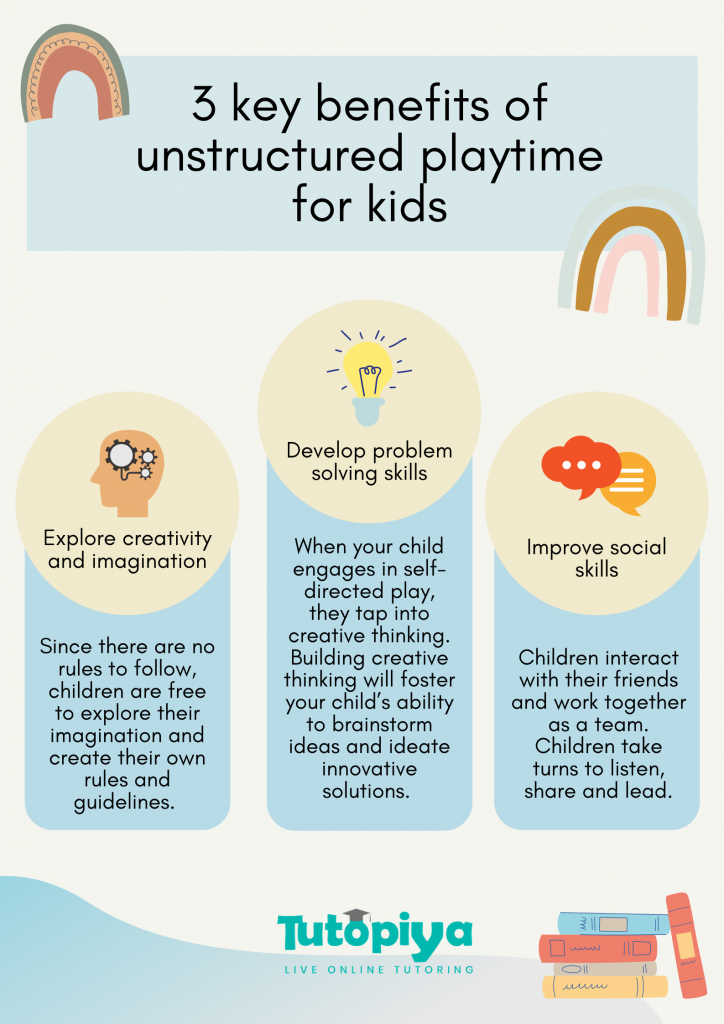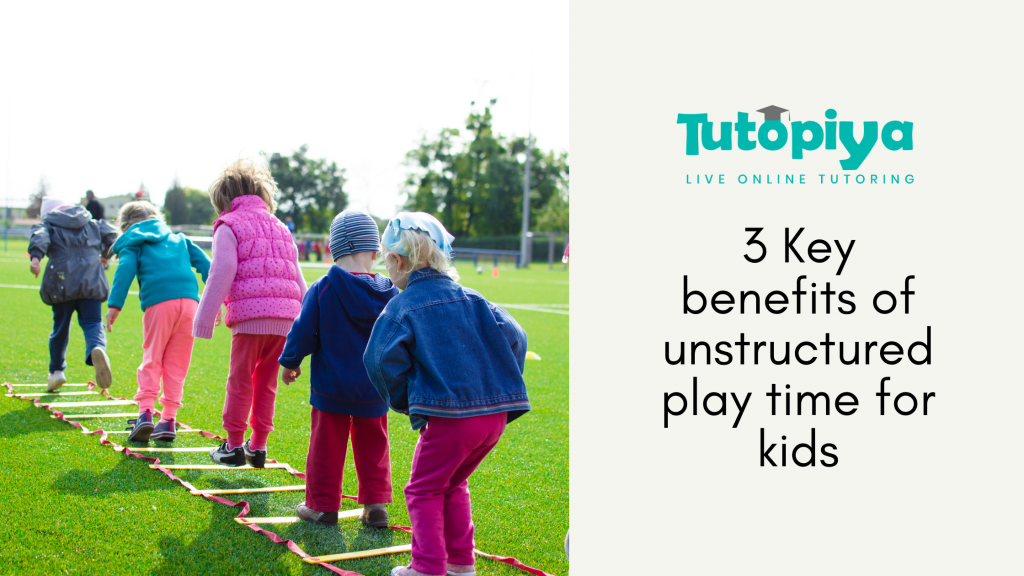This article explores what unstructured play time is, its importance as well as 3 key benefits of unstructured play time for kids.
Read also: 40 Online Educational Resources That Will Fuel Child Growth
What is unstructured play time?
Unstructured play is a type of play where children follow their own instinct, ideas and interests without guidance or an imposed outcome. In other words, children are in control during unstructured play.
Whereas structured play is generally led by an adult, where they are given instructions and directions to adhere to.
3 key benefits of unstructured play time
Unstructured play is often informally referred to as “letting kids be kids” or “just play.” At times, you may also hear it called “free play”. It allows children to explore their creativity and opportunities to explore boundaries without rules and guidelines. Studies have shown that unstructured play time is important for cognitive, physical, social and emotional development. Here are 3 key benefits of unstructured play time that we will explore in-depth.
Explore creativity and imagination
It specifically helps creativity and imagination, problem-solving abilities and social skills. When your child engages in self-directed play, they tap into creative thinking. Since there are no rules to follow, children are free to explore their imagination and create their own rules and guidelines.
Self plays like dressing up, opening a restaurant or building lego, encourages kids to try out new roles. When children do roleplay, they would look into different perspectives and angles. This could result in them generating new ideas and innovative ways to do certain things.
Building creative thinking will foster your child’s ability to brainstorm ideas and ideate innovative solutions.
Develop problem-solving skills & critical thinking
When your child is engaged in self-directed play, they have a lot of decisions to make. When they take lead, their natural first steps would be figuring out the process and then assigning roles. Next, they have to decide how to set up and the materials they need. All these require serious thinking!
When your children ask you to play with them, they will lead you to play their game their way. This is not only a great way to bond with your child, you can watch how their creativity grows them as a person.
These skills are crucial to help your child grow in their academics and life in general.
When children play together, they learn to create rules and roles and they will learn to solve problems together. In light of a dispute, children will learn how to share and verbalize their thoughts to work together. Children will be able to hone their interaction skills and learn to cope with and work through frustrations and conflict.
Children would not be aware that they are critically thinking to resolve any type of problem but they are internalising the situation. They will be able to provide a solution for you when things do not go the way they expected. Hence, encourage your child to direct self-play and allow them to lead you in their games.
Improve Social skills
This point aligns with children developing problem-solving and critical thinking skills. Unstructured play encourages children to interact with their friends and work together as a team. Children take turns to listen, share and lead. This allows them to have the chance to learn from their friends and be a good team player in games.
Your child will learn how to communicate with their friends to let them know his or her thoughts.

All these skills are essential for your child’s growth and development through their early years. Therefore, it is important that you allow your child to play on their own and provide them with space and time they need.
About The Author
Eleen Tan
I am currently a full-time student studying at a local university in Singapore while freelancing as a writer. I enjoy writing and sharing useful education-related tips with my fellow studying peers. During my leisure time, I enjoy doing creative arts and volunteering work. I am passionate about sharing my experience as a student! ☺



